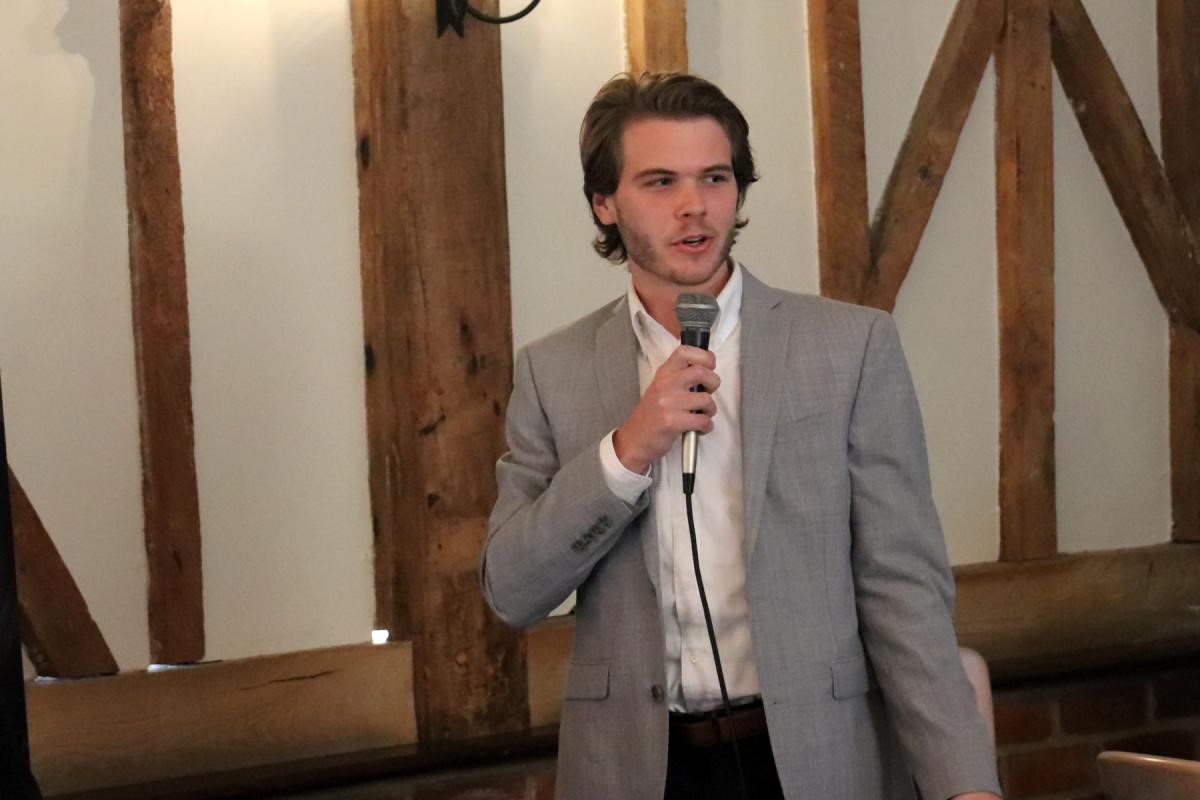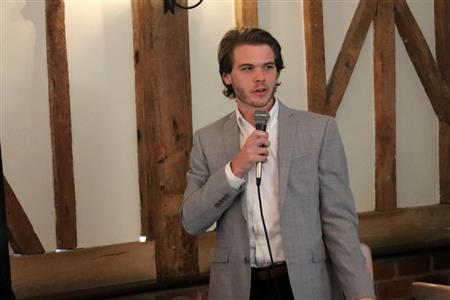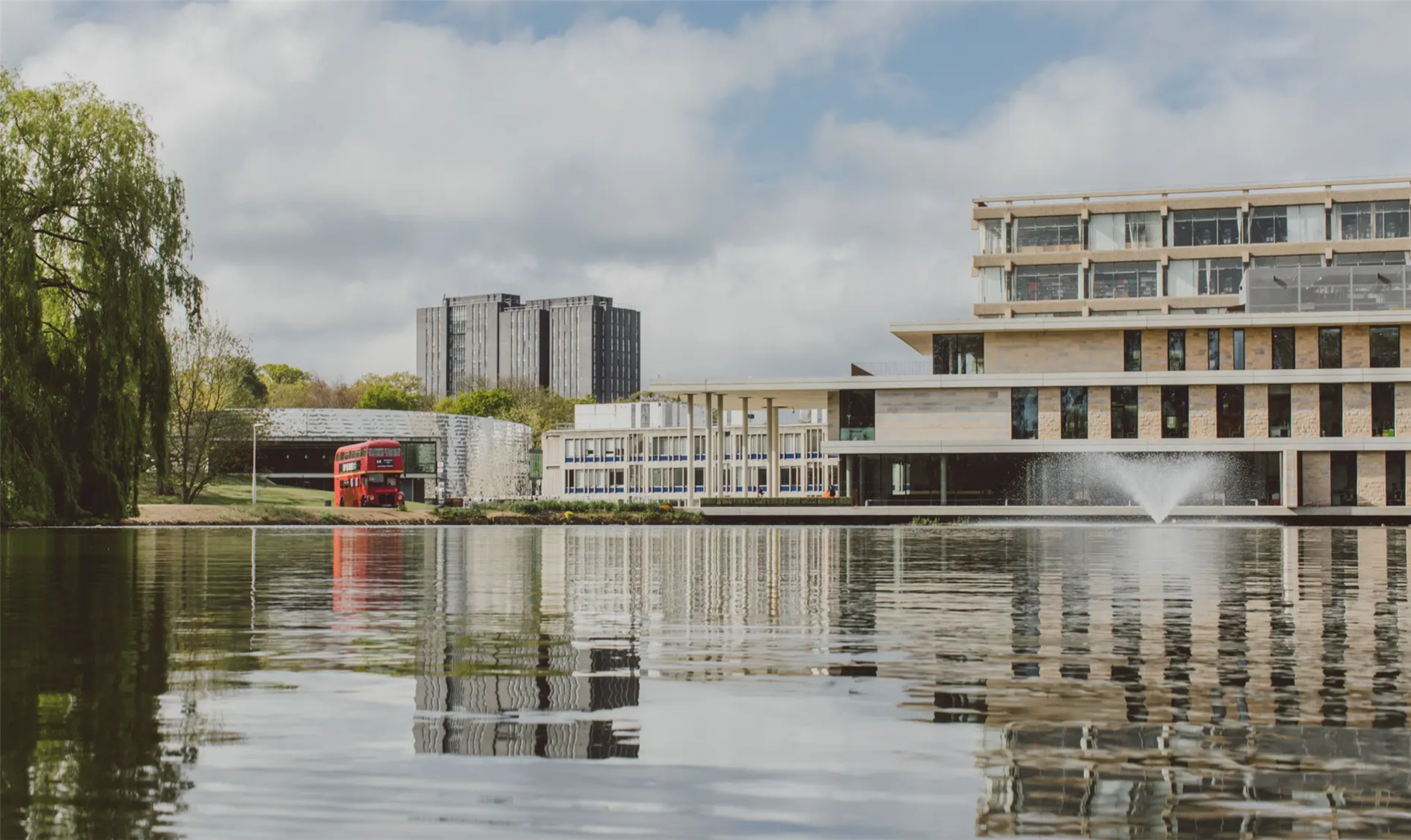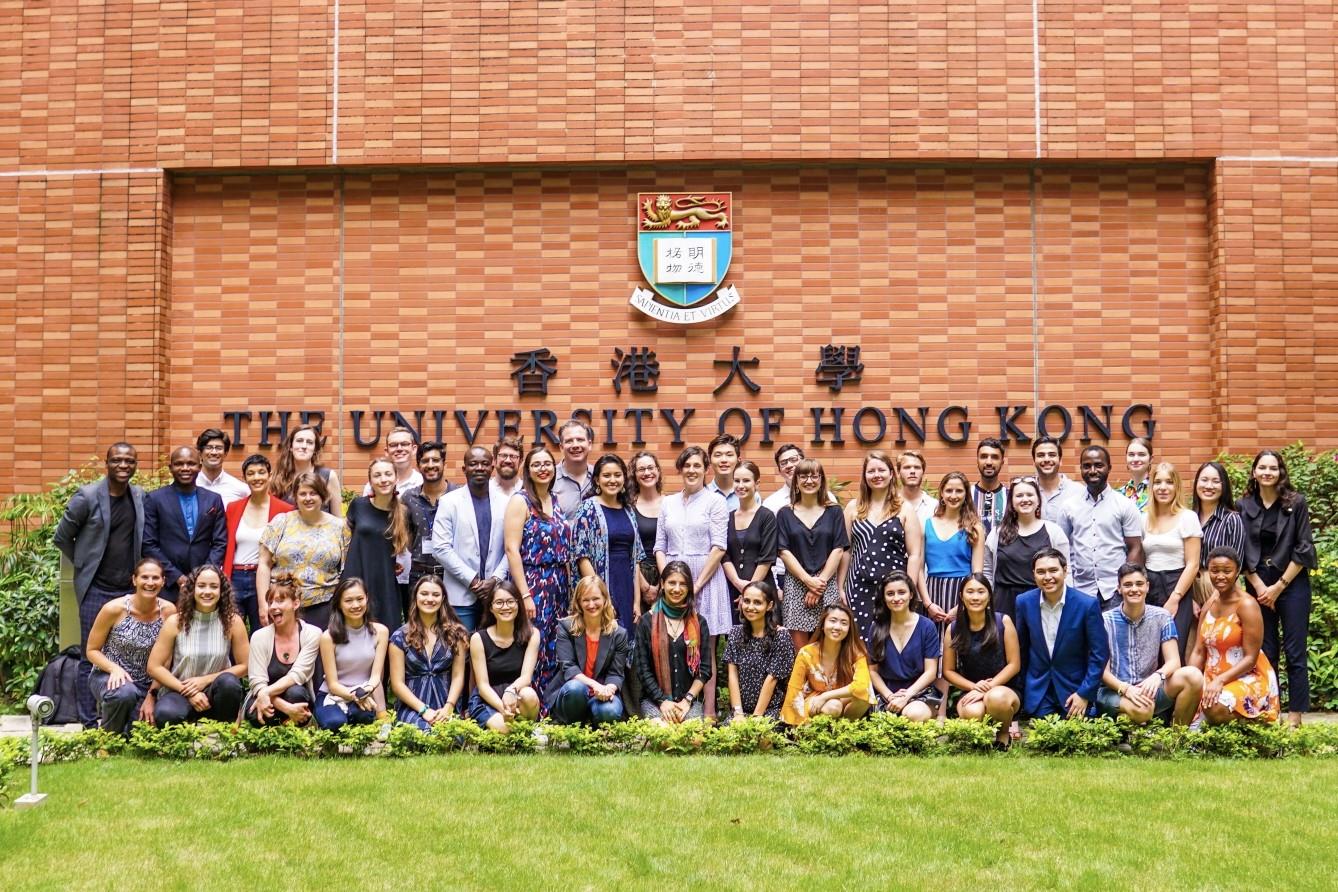Introduction
When I applied for the Rotary International Global Grant Scholarship back in 2018, following two years working in the human rights field as a media producer for the NYC-based
New Media Advocacy Project, I had a fairly clear sense of the opportunities I sought to pursue and what I hoped to accomplish through postgraduate studies. I asked for Rotary’s support progressing towards a career that blended my interests in emerging technologies with human rights legal advocacy in order to - as stated in my application -
“attain the advanced knowledge that is required to become a leader in the field of human rights and to turn my passion for service into tangible outcomes for the millions of people worldwide who struggle to have their rights recognized and respected.” Prior to applying, I thoroughly researched programs in human rights law that would provide me with the academic knowledge as well as practical experience that would prepare me for the type of work that I was interested in pursuing. After rather extensive deliberation, I settled on the University of Essex, a world-renowned institution for the study and practice of international human rights law, which I believed offered the ideal platform to lift me towards the next step of my career in the human rights field. Less than a year on from my Global Grant year, this has proven to be the case as I find myself working as a researcher for one of the largest human rights organizations in the world, Amnesty International. (For more background, check out my RI Global Grant Year blog
here)
My Global Grant Year
While I had not heard of the University of Essex prior to making my application for the Global Grant, a search for academic programs related to the study and practice of human rights law quickly revealed that Essex has one of the world’s first and most highly-regarded courses in this area. Aside from a tremendous faculty which includes multiple UN Special Rapporteurs and leading experts in numerous areas of international law, the University is also home to its own
Human Rights Centre, which actively engages in the practice of human rights and provides students with a wide range of opportunities to gain professional experience.
University of Essex, Colchester Campus
The LLM course that I completed was both academically rigorous and intellectually stimulating, covering topics ranging from the law of armed conflict to refugee law, international criminal law and more. Lecturers made sure to not only explain the necessary legal principles, but also challenged us to consider how these might be applied to real-world scenarios through role-play exercises and other hypothetical cases and situations. In the end, I came away with a comprehensive understanding of the international human rights legal framework as well as how to work with the institutions that promote and enforce it. Consistent with my prior interest in the intersection of technology and human rights, I elected to write my dissertation on the application of human rights law with respect to the impact of sanctions on a country’s access to information technologies like messaging platforms and privacy tools which uniquely allow people living in repressive societies to share information securely and on a mass scale.

Students chalk the articles of the Universal Declaration of Human Rights on the University square in celebration of Human Rights Day
In addition to stimulating course material, due to its active faculty and Human Rights Centre, the one-year Master’s course offered a wealth of opportunities to gain practical experience in the field. Alongside my intensive course-load, I applied for a number of paid and volunteer positions uniquely available at the University of Essex. Given my background in media production, I was hired to manage and develop content for the
Human Rights Centre blog, as well as produce and co-create the Centre’s podcast, titled
RightsCast. In this role, I had the opportunity to speak to and record interviews with experts from academia, NGOs, and the private sector about their work and to share these conversations with the wider human rights community. While working on my dissertation, I also helped organize an expert meeting on the conduct of investigations into violations of international law in the context of armed conflict hosted by Amnesty International at their headquarters in London. I also authored a summary of the topics discussed during this meeting which was published by the
University of Essex Armed Conflict and Crisis Hub.

Speaking at the International Day Paul Harris Fellows Lunch in Chelmsford
Perhaps one of the most valuable experiences that I had during my Global Grant year at the University of Essex was my participation in Amnesty International’s
Digital Verification Corps, a global training program in the use of open source research techniques for human rights documentation based at 6 universities worldwide (the University of Essex, University of Cambridge, University of California Berkeley, University of Hong Kong, the University of Pretoria, and the University of Toronto). Through this program, Amnesty trains students in how to gather and verify videos and photos showing potential human rights violations, using techniques such as reverse image search, geolocation, and shadow analysis to verify the authenticity, location, and time of audiovisual content posted on social media. Once trained, student volunteers contribute directly towards Amnesty’s research efforts by providing verified open source audiovisual information for incorporation into research reports, briefings, or press releases.

Presenting the work of the Essex DVC team’s work at the DVC Summit in Hong Kong
Participants and presenters at the DVC Summit
Joining Amnesty International
In August, while completing my dissertation, I accepted an offer to continue to work for Amnesty International as an open source researcher and assistant coordinator to the DVC. In this role, I work closely with the Head of Amnesty International’s Evidence Lab within the Crisis Response programme to carry out open source investigations into potential human rights abuses committed in the context of emerging crises and conflicts, as well as train and manage the research of more than 100 DVC volunteers.
One of my first projects with Amnesty involved researching and producing a comprehensive timeline of the Hong Kong protests with a focus on incidents of police misconduct. I helped verify hundreds of videos from the demonstrations and provided analysis of the type of misconduct shown according to international human rights law. This unique visual format was the first of its kind published by Amnesty International and is now a part of our research reporting toolbox. My research has also contributed to Amnesty’s ground-breaking advocacy around the deadly use of tear gas and smoke grenades in Iraq, the killing of protesters in Iran, and the violent repression of protests in Chile.
The DVC and Evidence Lab continue to play an ever-expanding role in Amnesty’s research efforts and are a key part of the organization’s ability to respond quickly to emerging crises and document human rights in difficult-to-access parts of the world. For example, we recently
verified nearly 60 incidents of state repression across the Americas in the context of COVID-19. We also recently re-launched our digital platform called the
Citizen Evidence Lab where we share best practices, emerging techniques, and tools for conducting investigations, to which I have contributed multiple articles. This platform supports human rights organizations, practitioners and others to take better advantage of the digital resources critical for modern fact-finding.
Conclusion
Reflecting back on my aspirations and immediate goals following my Global Grant year and graduate studies, it would be difficult to imagine a more ideal position than the one I am in now. Bringing together my skills and interest in the application of emerging technologies to support human rights advocacy as well as my advanced knowledge of international law, my current work as an open source researcher with Amnesty International perfectly encapsulates what I have been able to achieve through the Global Grant. While it feels like it wasn’t long ago that I was heading to the University of Essex for the start of my Global Grant scholarship, coming up on one year since completing my LLM it is clear just what an incredibly enriching experience it proved to be - one that far exceeded my expectations. The knowledge and experience that I gained through this graduate degree propelled me into a career that I not only enjoy and am invigorated by, but one that I feel I can bring something uniquely valuable to. Financially, it would have been very difficult for me to pursue this type of opportunity on my own and it is not at all unreasonable to say that none of this would have been possible without Rotary International’s support. So, by way of conclusion, I would like to thank Rotary International for providing these types of opportunities to individuals like myself and supporting the type of work that we are passionate about. I hope that my experiences described here can serve as just one example of the incredible impact that scholarships like the Global Grant can have.





